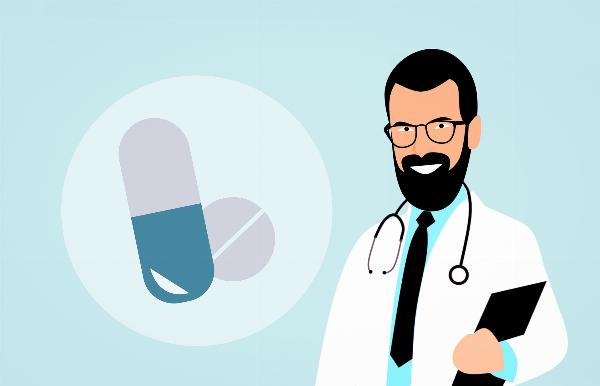Legal Support for Addiction Recovery in New Jersey: Know Your Rights

Strong 8k brings an ultra-HD IPTV experience to your living room and your pocket.
Introduction: The Intersection of Law and Addiction Recovery
Navigating addiction recovery can be challenging, not only from a health perspective but also from a legal standpoint. In New Jersey, individuals in recovery often face legal issues that can impact their journey to sobriety. Understanding your legal rights and accessing appropriate support can make a significant difference in achieving and maintaining recovery. This blog will explore the various aspects of legal support available to those in addiction recovery in New Jersey, including rights, protections, and resources.
New Jersey Psychotherapy Counseling Centers: A Path to Healing
Comprehensive Counseling Services
New Jersey psychotherapy counseling center is home to numerous psychotherapy counseling centers dedicated to helping individuals navigate mental health challenges. These centers offer a range of services, including individual therapy, couples therapy, and group therapy. Licensed therapists use evidence-based approaches such as Cognitive Behavioral Therapy (CBT) and Dialectical Behavior Therapy (DBT) to address issues like anxiety, depression, trauma, and addiction.
1. Legal Protections for Individuals in Recovery
Anti-Discrimination Laws
New Jersey has several legal protections in place for individuals seeking addiction treatment. The New Jersey Law Against Discrimination (LAD) prohibits discrimination based on disability, which includes substance use disorders. This means that individuals in recovery cannot be unfairly treated or denied employment opportunities solely because of their addiction history, provided they are in recovery and meet job performance standards. Similarly, the Americans with Disabilities Act (ADA) offers protections at the federal level, ensuring that individuals in recovery are given equal opportunities in various aspects of life, including employment and housing.
Confidentiality and Privacy
Confidentiality is a critical aspect of addiction treatment. Under both federal and state laws, such as the Health Insurance Portability and Accountability Act (HIPAA) and the Confidentiality of Alcohol and Drug Abuse Patient Records (42 CFR Part 2), treatment providers are required to keep patients' treatment information private. This confidentiality helps individuals feel secure in sharing sensitive information with their healthcare providers, which is crucial for effective treatment. In New Jersey, state regulations reinforce these protections, ensuring that your privacy is upheld throughout your recovery process.
2. Legal Assistance for Navigating Addiction Treatment
Legal Aid for Accessing Treatment
Legal aid organizations in New Jersey can assist individuals in accessing addiction treatment services. These organizations provide support for securing insurance coverage, navigating Medicaid and other public assistance programs, and addressing any legal barriers to treatment. For example, if an individual’s insurance company is denying coverage for necessary addiction treatment services, legal aid can help appeal these decisions and ensure that individuals receive the care they need.
Navigating Employment and Disability Issues
For those facing employment issues related to their addiction, legal support can be crucial. New Jersey's unemployment compensation laws and disability benefits programs offer support for individuals who may need time off for treatment or recovery. Legal professionals can assist with filing claims for unemployment benefits, disability benefits, or accommodations in the workplace. They can also provide guidance on how to address potential workplace discrimination or wrongful termination related to an individual’s substance use disorder.
3. Legal Rights During and After Treatment
Rights During Inpatient Treatment
During inpatient treatment, patients have specific rights that protect their well-being. These include the right to receive adequate medical care, the right to be free from abuse or neglect, and the right to participate in their treatment planning. New Jersey's regulations ensure that treatment centers adhere to these standards, providing a safe and supportive environment for individuals in recovery. Legal advocates can help address any issues or grievances that arise during treatment, ensuring that patients’ rights are respected.
Rehabilitation and Reentry Rights
After completing a treatment program, individuals may face challenges reintegrating into society. Legal support can assist with various aspects of reentry, including expunging criminal records related to substance use, addressing housing and employment barriers, and securing necessary benefits. In New Jersey, individuals can work with legal professionals to navigate these challenges, ensuring that their recovery is not undermined by legal obstacles.
4. Addressing Criminal Justice Issues Related to Addiction
Drug Court Programs
New Jersey's drug court programs provide an alternative to traditional criminal justice processes for individuals with substance use disorders. These programs focus on rehabilitation rather than incarceration, offering comprehensive treatment and support services. Participants are closely monitored and must meet specific treatment goals to avoid criminal penalties. Legal professionals can help individuals navigate drug court requirements, ensuring they understand their rights and responsibilities while benefiting from the program’s support.
Expungement of Criminal Records
For individuals with a criminal record related to substance use, New Jersey offers opportunities for expungement. Expungement is the legal process of removing criminal records from public view, which can significantly improve an individual's chances of securing employment and housing. Legal experts can guide individuals through the expungement process, helping them clear their records and move forward with their lives after recovery.
5. Resources and Support for Legal Assistance
Local Legal Aid Organizations
Several organizations in New Jersey offer free or low-cost legal assistance to individuals in addiction recovery. These include the Legal Services of New Jersey (LSNJ) and other local legal aid providers. These organizations can help with a range of issues, from navigating insurance disputes to addressing employment and housing challenges.
Support from Advocacy Groups
Addiction recovery advocacy groups in New Jersey, such as the New Jersey Association of Mental Health and Addiction Agencies (NJAMHAA) and the New Jersey Recovery Advocates, often provide resources and support for legal issues related to recovery. These organizations can connect individuals with legal professionals who specialize in addiction-related cases and offer guidance on accessing necessary services.
Long-Term Mental Health Facilities in New Jersey: What You Need to Know
Understanding Long-Term Mental Health Facilities
Long-term mental health facilities in New Jersey provide extended care for individuals with severe and persistent mental health conditions. Unlike short-term treatment programs, these facilities offer a more comprehensive approach, supporting residents through long-term mental health facilities new Jersey and recovery.
Conclusion: Empowering Your Recovery with Legal Support
Understanding and exercising your legal rights is an essential part of the recovery process. In New Jersey, a range of legal protections and resources are available to support individuals in their journey to sobriety. By leveraging these resources, individuals can overcome legal barriers, access the treatment they need, and build a stable foundation for long-term recovery. Whether you’re facing discrimination, navigating treatment-related issues, or seeking assistance with reentry into society, knowing your rights and accessing appropriate legal support can make a significant difference in your path to recovery.
Note: IndiBlogHub features both user-submitted and editorial content. We do not verify third-party contributions. Read our Disclaimer and Privacy Policyfor details.


